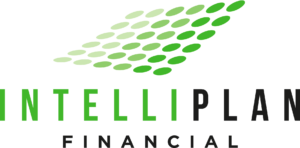Are you familiar with the upcoming changes with the SECURE Act 2.0? As a nod to the original Setting Every Community Up for Retirement Enhancement Act, better known as the SECURE Act of 2019, this many-faceted update set to go into effect in 2023 is proving to be one of the most comprehensive legislative updates intended for retirement taxes and accounts in recent times.
With sweeping changes ranging from taxation exceptions for inheritance beneficiaries all the way up to modernizing lifetime income investments available for participation plans, these reforms are sure to have an impact regardless of your financial background!
In this blog post, we’ll examine some of the key takeaways of the overhaul and what it could mean for you moving forward.
Increase the required minimum distribution age from 72 to 73.
The SECURE Act 2.0 has introduced a few changes that allow Americans to keep their retirement savings longer. One such change is the required minimum distribution age, which was previously 72 and has now been increased to 73, starting January 1, 2023.
This age increase means that those aged 72 would only be required to make required minimum distributions (RMDs) from their retirement accounts once they had turned 73 years old. In addition, these additional twelve months provide retirees with an additional year of potential growth on their investments and/or a more extended period of tax deferment under certain circumstances.
Starting January 1, 2033, the RMD age is set to increase again from age 73 to 75.
RMD Penalties Reduced
There are penalties for failing to take an RMD. Prior to SECURE Act 2.0, if you missed an RMD or didn’t take enough out within a given year, you would be hit with a 50% excise tax on the shortfall. Though there were a few circumstances that could help you avoid this penalty, this was one of the heaviest penalties in the entire tax code.
However, SECURE Act 2.0 reduces that penalty to 25% in all cases beginning in 2023. Additionally, if the owner withdraws the missed RMD amount (in addition to the current RMD amount due) by the end of the second year following the year it was due, the penalty is reduced to 10%.
Starting in 2024, RMDs for Roth accounts in employer retirement plans will no longer be required.
Higher catch-up contributions.
The Secure Act 2.0 has made it easier for people to give their account balances a boost in the short term.
In 2023, retirement plan catch-up contributions for individuals over the age of 50 has increased to $7,500. This is a $1,000 increase from 2022. IRA catch-up contributions from people who are 50 and older will be indexed for inflation starting in 2024.
Beginning in 2025, individuals who are 60, 61, 62 and 63 years old will be able to make catch-up contributions of $10,000 annually to their workplace retirement plans, including 401(k), 403(b) plans, SIMPLE IRA and SIMPLE 401(k). All catch-up contributions for participants earning over $145,000 annually in the prior year must be made on a Roth basis (after-tax). If a participant makes less than $145,000 annually, the Roth contribution requirement does not apply. The $10,000 catch-up contribution limit for people between 60 and 63 will be indexed for inflation beginning in 2026.
Ideal for those wishing to invest more before retirement, the additional contributions allowed by the legislation can potentially help account holders get more out of their account values and retirement funds.
Allow penalty-free hardship withdrawals.
An important feature of the Secure Act 2.0 is its expansion of hardship withdrawals, which allow individuals to access retirement funds without incurring a penalty based on certain criteria.
In the past employees were required to show evidence of the hardship in order to receive hardship withdrawal from their retirement accounts. This new provision, effective after December 29, 2022, is beneficial, as it allows individuals to tap into retirement savings in cases of hardship, and employers may be able to rely on an employee’s self-certification of both:
- The fact that they have a hardship.
- That the amount of the requested distribution is not in excess of the employee’s financial need.
Such flexibility helps individuals facing unforeseen and difficult situations stay on track with their financial goals by providing them with access to needed funds without having to incur a substantial fine.
Allows a 529 Plan to Roth IRA Rollover
Beginning in 2024, the Secure Act 2.0 allows for tax-free rollovers from Section 529 qualified tuition plans to Roth IRAs, under certain circumstances. The rollovers would be subject to Roth IRA contribution limits with a $35,000 lifetime limit. In addition, the 529 plan must have been open for a minimum of 15 years and cannot exceed the amount contributed (plus earnings) before the five year period ending on the date of distribution.
Allow employers to make matching contributions to 401(k) plans based on student loan payments.
Starting in 2024, the Secure Act 2.0 allows plan sponsors to offer plan participants matching contributions based on their student loan payments as part of a 401(k) plan.
These matching contributions will be available each plan year and demonstrate the plan sponsor’s commitment to helping employees pay off student loans while still being able to invest in retirement plans like a 401(k).
In Conclusion
Overall, the changes in the Secure Act 2.0 could be beneficial to the average worker. With more time to contribute to retirement accounts and catch up on savings, individuals could be better prepared for a comfortable retirement.
These updated rules also make it easier for small businesses to provide benefits for their employees, encouraging saving from a younger age.
If you have questions about how these changes affect you or your business, don’t hesitate to contact us at Intelliplan Financial. We would be happy to help you navigate these updates and get started planning for your future.
Disclosure: Financial Planning and Advisory Services are offered through Prosperity Capital Advisors (“PCA”), an SEC registered investment adviser. Registration as an investment adviser does not imply a certain level of skill or training. Intelliplan Financial and PCA are separate, non-affiliated entities. PCA does not provide tax or legal advice. Insurance services offered through Intelliplan Financial are not affiliated with PCA.
Financial Planning and Advisory Services are offered through Prosperity Capital Advisors (“PCA”), an SEC registered investment adviser. Registration as an investment adviser does not imply a certain level of skill or training. Intelliplan Financial and PCA are separate, non-affiliated entities. PCA does not provide tax or legal advice.







